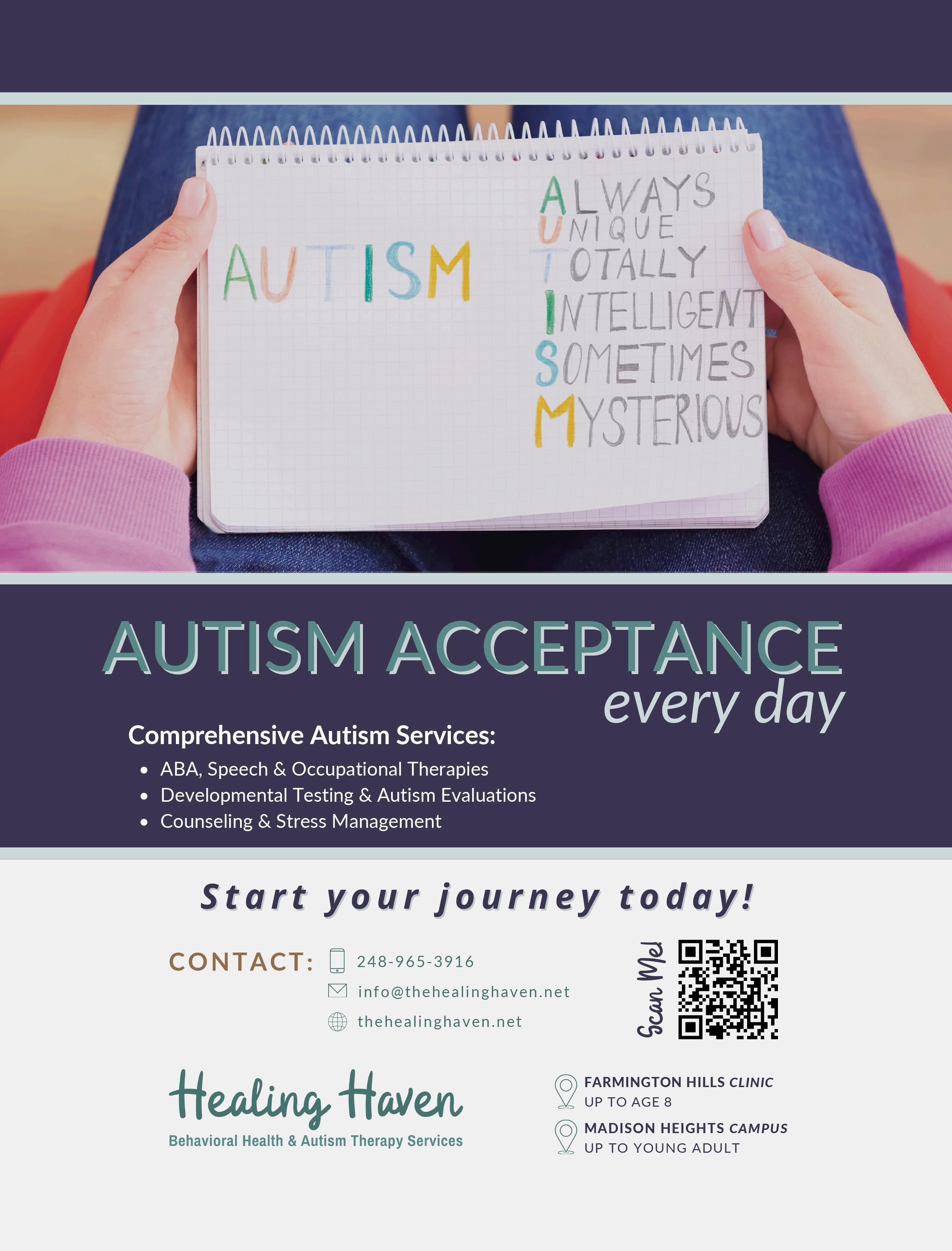
3 minute read
5 WAYS TO SUPPORT Autism Acceptance Month
BY JOCELYN COOK
It’s April, and during this month we at Healing Haven, along with many others, celebrate Autism Acceptance Month. April 2nd is World Autism Awareness Day, as established by the United Nations in 2007.
The name was changed from Autism Awareness Month to Autism Acceptance Month in 2021. With 1 in 36 children in the United States now being diagnosed with autism (according to the CDC), awareness only goes so far, and without action is meaningless.
SO HOW CAN WE TAKE ACTION?
1. Learn about Autism
Considering the statistics, you probably know at least one child or family impacted by autism. Autism is a developmental condition that can impact communication and social interaction. Individuals with autism may display repetitive behaviors, obsessive interests, communication challenges and may have learning difficulties. However, autism is a broad spectrum, and individuals can have a vast array of abilities as well as struggles.
It’s also important to know that not all individuals with autism look or act a
certain way. For many, their autism may not even be obvious. Nevertheless, just because an individual’s autism may not be noticeable doesn’t mean they don’t have unique needs.
2. Reach Out and Listen to Parents
Parents who have a child with autism often deal with increased stress and isolation. Their child may be prone to challenging behaviors outside of a strict routine, which means invitations to social events are limited.
Invite a parent of a child with autism out to coffee or a meal and be a listening ear. Ask questions to learn how you can support them. Invite their family over and prepare any accommodation needed for their child.
3. Teach Acceptance & Belonging
If you are with your child and see another child engaging in stereotypical “autistic” behaviors, instead of telling your child to stop staring, use the experience as an opportunity for discussion. You could say, “It looks like he/she is feeling happy/ sad. Sometimes, people show how they feel in different ways. What do you do when you feel (insert emotion)?”
Additionally, your child may have an autistic classmate. Discuss how we all have differences that make us unique. Together, come up with ways to befriend them and include them in activities. We all desire to belong in our communities.
4. Recognize Strengths
While autistic individuals can face many challenges, their challenges do not define them. In fact, people with autism often possess many incredible strengths and traits. They may demonstrate intense interest in one subject, or have the ability to deeply focus, retain facts, and exhibit attention to detail. 30 to 50 percent have average or above average intelligence. They are complex and gifted individuals who offer a unique perspective on the world.
5. Be an Advocate
Show your support in social settings involving individuals with autism or parents of children with autism. If a parent is trying to access accommodations for their child in a school, religious or community setting, advocate for them. Listen and share your voice to help influence the decision makers.
Throughout this month, how will you look for ways to advocate for those with autism? You can even make it a family challenge and discuss what you discover.
To learn more about the comprehensive autism services at Healing Haven, visit thehealinghaven.net.











